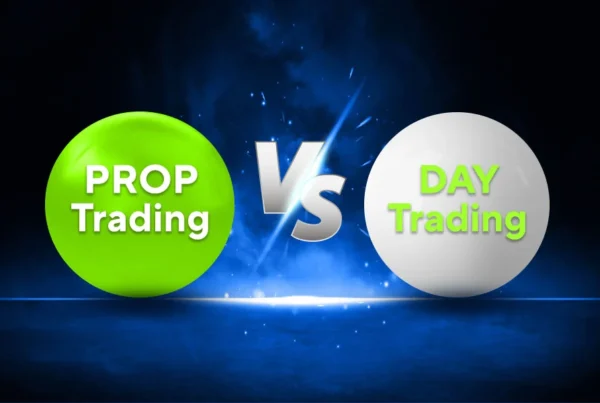
The financial markets pulsate with an undeniable allure. The promise of substantial returns beckons, the thrill of dynamic market action ignites the imagination, and the sense of independence fuels a desire for control. Yet, beneath this captivating surface lies a hidden challenge – the internal battleground of emotions. Fear, greed, and frustration can lurk just beneath the surface, waiting to sabotage even the most meticulously crafted trading strategy.
This is where the crucial concept of trading psychology comes into play. This article delves deep into this critical realm, exploring the profound impact our emotions have on trading decisions. We’ll unmask common emotional pitfalls that can derail your performance and equip you with powerful strategies to cultivate a winning mindset. By mastering your emotional state, you gain a significant edge in the dynamic and often-unpredictable market environment. Imagine the difference between entering the trading arena with clear focus and unwavering discipline, versus being clouded by emotional biases. This is the power of trading psychology – the ability to transform your emotions from liabilities to assets, propelling you towards your financial goals.
Unveiling the Emotional Rollercoaster: How Markets Trigger Our Reactions
Imagine a scenario where the market takes a sudden plunge, wiping out a significant portion of your recent profits. Anger and frustration might surge through you, tempting you to make hasty decisions to recoup your losses. Conversely, a rapid rise in the market’s value could trigger feelings of euphoria, leading to overconfidence and neglecting proper risk management.
These emotional responses are natural. Our brains are wired for survival, and financial markets can evoke emotions deeply intertwined with our sense of reward and loss. Understanding these common emotional triggers is crucial for effectively managing them while trading.
Here’s a breakdown of some pervasive emotions in trading and their potential pitfalls:
Fear: Fear of losing money can lead to premature exits from winning trades or hesitation to capitalize on profitable opportunities. Traders gripped by fear might abandon their trading plan and make impulsive decisions that result in losses.
Greed: The desire to maximize profits can tempt you to overstay positions or disregard risk management principles. This can lead to excessive losses if the market turns against you.
Frustration: Market setbacks are inevitable. When losses accumulate, frustration can cloud your judgment and lead to impulsive trading decisions, further exacerbating the situation.
Overconfidence: A winning streak can breed overconfidence, causing you to neglect risk management or disregard market signals indicating a potential reversal. Overconfidence can quickly lead to significant losses if not kept in check.
By recognizing these emotional triggers and their potential consequences, you can take proactive steps to prevent them from derailing your trading strategy.
Building Your Emotional Arsenal: Strategies for Mastering Your Mind
Mastering your emotions in trading doesn’t mean becoming emotionless. It’s about recognizing emotions, understanding their potential impact, and developing strategies to manage them effectively. Here are some practical tactics to cultivate a champion mindset for trading:
Develop a Trading Plan and Live By It: Having a well-defined trading plan that outlines your entry and exit points, risk management parameters, and other critical elements helps prevent emotional decision-making. Your trading plan acts as your anchor during times of emotional turmoil, keeping you focused on your strategy.
Embrace Discipline: Discipline is the cornerstone of successful trading. This means sticking to your trading plan even when emotions run high. It might require practice and self-awareness, but with dedication, you can develop the discipline to prioritize your strategy over emotional impulses.
Practice Mindfulness: Mindfulness exercises like meditation can help you become more aware of your emotions and their potential influence on your trading decisions. By taking the time to quiet your mind and focus on the present moment, you can cultivate a sense of calm and detachment that allows for more rational decision-making.
Practice Gratitude: Taking the time to be grateful for your wins, no matter how small, can counterbalance negativity and build resilience. Gratitude fosters a positive outlook, which can help you weather losses and maintain a clear head during challenging market conditions.
Maintain a Trading Journal: Track your trades and the emotions you felt during each decision. This allows you to identify patterns and develop strategies to manage those emotions in the future. Reviewing your trading journal regularly provides valuable insights into your emotional responses and helps you refine your approach.
Focus on the Process, Not the Outcome: Obsessing over the outcome of individual trades can amplify emotions. Instead, focus on executing your trading strategy with discipline. Detach your emotions from the final result and understand that successful trading is a process, not a single event.
These strategies will empower you to respond to market fluctuations with a clear head, enabling you to make informed decisions based on your trading plan, not your emotions. By building your emotional arsenal, you gain a significant advantage in the dynamic world of financial markets.
Cultivating Emotional Resilience: A Lifelong Journey
While managing emotions in trading is an ongoing process, with setbacks and moments where emotions prevail, the key lies in learning from these experiences and refining your approach. Developing emotional resilience is, after all, a lifelong journey.
Research and References
Trading psychology is a well-established field with a growing body of research. Here are some credible sources that delve deeper into this topic:
“Trading in the Zone” by Mark Douglas: This classic book explores the psychological aspects of successful trading, emphasizing the importance of emotional mastery.
“The Complete Psychologist for Traders” by Brett N. Steenbarger: This comprehensive guide explores the psychology of trading from various angles, offering practical strategies for managing emotions.
Academic Journals: Several academic journals publish research on the psychology of financial markets. These resources can provide valuable insights into the decision-making processes of traders and the impact of emotions on trading behavior. Consider searching academic databases like JSTOR or ScienceDirect for relevant articles.
By exploring these resources and staying updated on the latest research in trading psychology, you can further enhance your understanding of the mind-market connection and refine your approach to managing emotions while trading.
Conclusion
The financial markets are a dynamic and often unpredictable arena. While technical knowledge and well-defined strategies are crucial for success, mastering your emotions is equally important. By understanding the emotional pitfalls associated with trading and implementing strategies for managing them, you gain a significant advantage in this complex environment.
Remember, cultivating emotional resilience in trading is a continuous journey. There will be setbacks, moments of doubt, and losses that trigger negative emotions. The key lies in learning from these experiences, adapting your approach, and remaining committed to your long-term trading goals.




